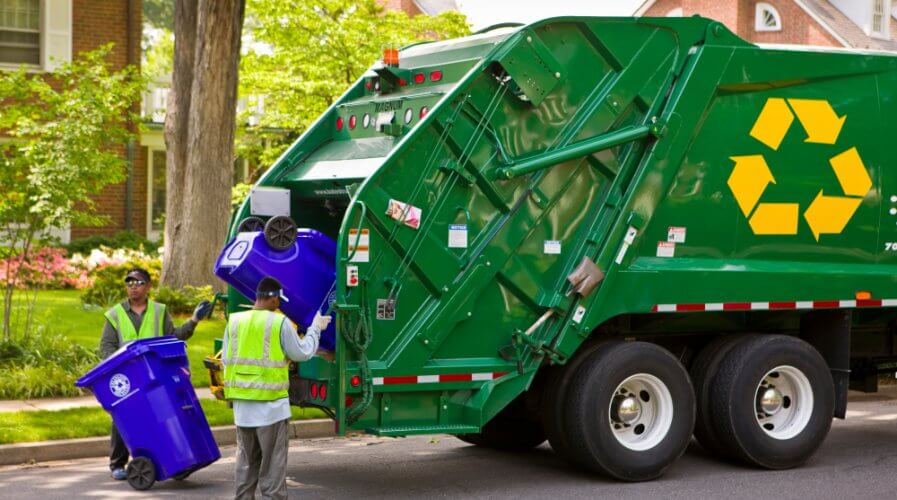
Can technologies such as artificial intelligence and IoT really transform waste management? Source: Shutterstock
The role of technology and industry 4.0 in transforming waste management
WASTE MANAGEMENT is a key concern for businesses as we move into an era where regulators and the public are placing a greater emphasis on reducing pollution, boosting sustainability, and protecting the environment.
According to a new report by the International Solid Waste Association (ISWA), technologies such as big data, artificial intelligence (AI), automation, and the internet of things (IoT) — all of which form the core of the Industry 4.0 revolution — can play a significant role in revolutionizing waste management.
ISWA believes that Industry 4.0 creates new opportunities to prevent, reduce, and even eliminate waste from specific sectors and streams, to advance resource recovery, to achieve high standards of treatment and disposal, and to substantially reduce pollution.
Cutting edge technologies that businesses are already exploring provide new tools to stimulate interaction among stakeholders, awareness among citizens, and help implement tactics such as “polluter pays” and foster a culture where producers take on more responsibility for the waste they create.
Further, technologies such as IoT and automation also make it possible for government agencies to play a bigger role in salvaging their cities while also reducing or eliminating “dangerous” jobs in the waste management space.
According to the vision of the ISWA, big data combined with IoT and AI will enable governments to create tailor-made analytics dashboards that help gain an intimate understanding of waste streams and design smarter resource recovery programs.
Further, the combination of technologies could also be easily used to automate recycling tasks — an area that is more popularly known as ‘robotic recycling’.
Based on ISWA’s understanding of the market, robotic recycling will become mainstream in the next 10 years, providing more accuracy, better flexibility, quick market adaptation, and transforming the materials recovery facilities (MRFs) of tomorrow.
Finally, businesses can also use data from IoT and other technologies that it embeds into products to better understand the customer’s usage and disposal patterns and better plan waste management to suit their demands while balancing the needs of the environment.
Truth be told, one of the biggest and most important contributions that technology can make to waste management in 2020 and beyond seems to be through the creation of automation technologies, especially robotics.
While robotic recycling is set to go mainstream soon, plenty of organizations and governments are experimenting with the technology to create industrial environments that are not only safer for workers but also better for the environment.
Waste Robotics is now offering robotic metal sorting. In this video they sort zinc metal. @dirtyjobrobot #robotics #wastemanagement pic.twitter.com/axAAgfOdkA
— Robot&AIWorld (@RobotAndAIWorld) September 28, 2019
While the report is silent about the impact of 5G on waste management, given the heavy reliance on IoT and other technologies, it is expected that 5G will play a significant role in the industry once it becomes available.
In Southeast Asia, especially in Singapore, Malaysia, and Indonesia, waste management is a big challenge for the governments — and serious action is being taken by relevant agencies to tackle the issue.
Singapore’s National Environment Agency, for example, has been working on creating a strong waste management infrastructure in the country to support the needs of local businesses as well as residents.
Similarly, agencies in Malaysia and Indonesia have also rolled up their sleeves to tackle waste management and are betting on technology to help save the environment.
In the future, the ISWA believes more innovations in waste management should be expected — especially involving technologies that are core to the development of Industry 4.0.
READ MORE
- Ethical AI: The renewed importance of safeguarding data and customer privacy in Generative AI applications
- How Japan balances AI-driven opportunities with cybersecurity needs
- Deploying SASE: Benchmarking your approach
- Insurance everywhere all at once: the digital transformation of the APAC insurance industry
- Google parent Alphabet eyes HubSpot: A potential acquisition shaping the future of CRM


